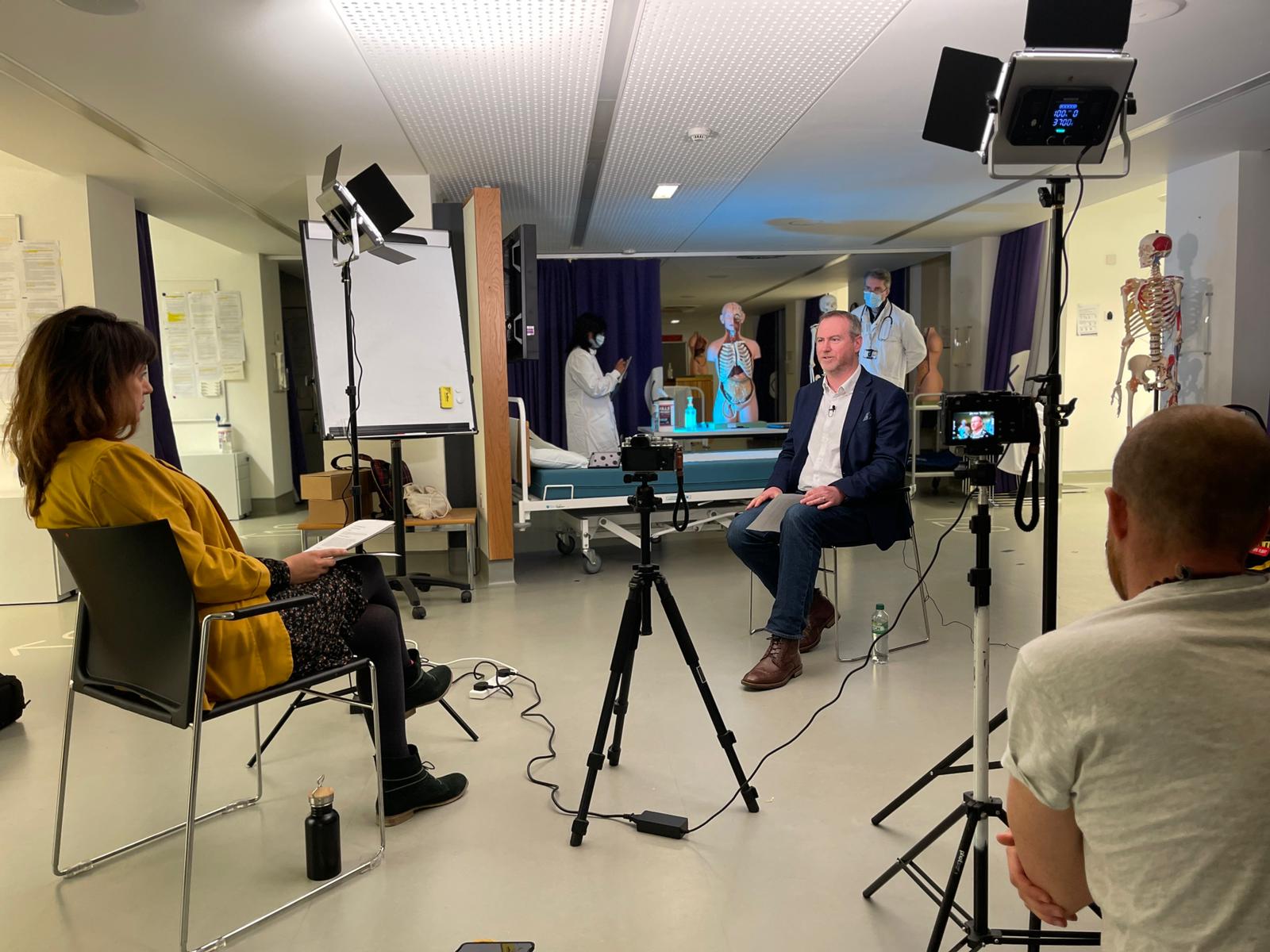Transitioning from academia to entrepreneurship can feel like a daunting leap. We’ve put together our top 7 tips and useful links to help you bridge the gap between research and real-world impact.
1. Recognise the Value of Your Research
Your research holds immense potential beyond academic circles. It can solve real-world problems, drive innovation, and create societal impact. Embrace the entrepreneurial mindset by recognising that your work can have a broader reach and significant benefits outside academia.
Talk to our Innovation Discovery team – they can help identify the commercial potential of your research and guide you through the process of transforming it into a viable business venture.

Tim Echtermeyer, CTO and founder of PhovIR in his lab at The University of Manchester
2. Seek Support and Guidance
You don’t have to make this transition alone. There are numerous resources and networks designed to support aspiring academic entrepreneurs. At the University of Manchester Innovation Factory, we offer guidance, mentorship, and resources to help you navigate this journey.
3. Develop a Business Mindset and Network with Like-minded Individuals
Shifting from an academic mindset to a business-oriented one involves understanding market needs, business models, and financial planning. We are equipped with subject-specific experts at the Innovation Factory who can help analyse your innovation in order to optimise success. Make sure you enrol in available workshops or courses on entrepreneurship to build these skills yourself as well.
About: The Masood Entrepreneurship Centre’s Startup Info Hub is an essential online resource offering practical advice, tools, and guidance for entrepreneurs at every stage of their journey. From business planning to funding and marketing, it provides everything needed to successfully start and grow a business.
About: Business Growth Hub in Manchester regularly hosts events and workshops aimed at helping entrepreneurs start and grow their businesses. These include sessions on business planning, marketing, finance, and more.
About: Pro Manchester is a membership organisation that supports businesses in Greater Manchester. They offer a wide range of events, including networking opportunities, workshops on business strategy, and seminars on various business topics.
The Startup Factory (TSF) Events
About: The Startup Factory is a Manchester-based accelerator that provides support to early-stage tech startups. They offer regular workshops and events focusing on different aspects of startup growth, including funding, product development, and marketing.
About: Manchester Digital is the trade body for the digital and tech sector in Greater Manchester. They host a range of events including workshops, meetups, and conferences that are beneficial for entrepreneurs in the digital space.
Women in Business Network (WIBN)
About: WIBN hosts regular networking events for female entrepreneurs and professionals. These events provide opportunities for networking, collaboration, and learning from other successful businesswomen.
4. Secure Funding and Investment
One of the biggest challenges is securing funding. Understanding the different types of funding available and how to attract investors is key. Northern Gritstone, for example, supports high-value spinouts from the university, offering significant investment opportunities.
5. Protect Your Intellectual Property
Protecting your intellectual property (IP) is vital. The Innovation Factory can help you navigate the complexities of IP protection, ensuring your ideas and inventions are safeguarded.
The main Intellectual Property Rights are:
• Patents
• Know-how
• Copyright
• Trademarks
• Design Rights
• Database Rights
Each type of IPR requires certain conditions to be met and/or actions to be taken in order to be valid and deliver sought protection.
Get in touch with our Head of IP
6. Embrace the Learning Curve
Transitioning to entrepreneurship requires continuous learning and adaptation. You’ll encounter new challenges, from understanding business models to managing finances. Be open to new experiences, learn from setbacks, and view failures as opportunities to grow.
Celebrate your successes, no matter how small—they build momentum and keep you motivated. Remember, entrepreneurship is a journey, and every step forward is progress. Surround yourself with mentors and peers who can offer guidance and support along the way.
Contact our commercialisation team for advice.

On set with Sentira XR (formerly VREvo). As part of the Innovation Factory service, we will create professional promotional videos for high value projects.
7. Gain Insights from Those Who Have Walked the Path Before You
Gain insights from those who have successfully made the transition. Watch this video interview with Marion Bernard, Chief Investment Officer of Northern Gritstone, and read her fuller interview here. Her journey and experiences offer valuable lessons for any aspiring entrepreneur.
Transitioning from academia to entrepreneurship is a journey of discovery and growth. With the right support, resources, and mindset, you can turn your research into a thriving enterprise, creating lasting impact in the world.







